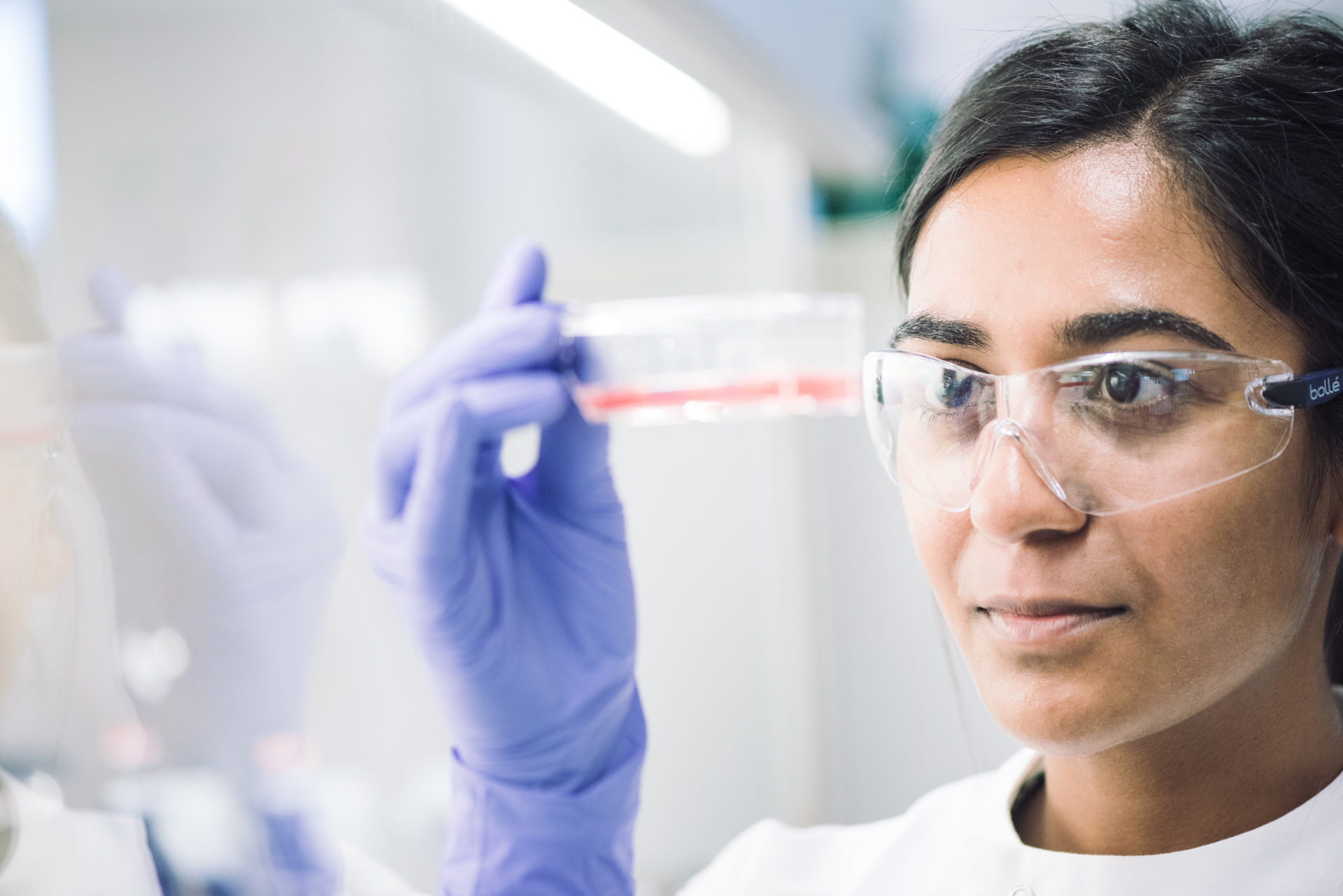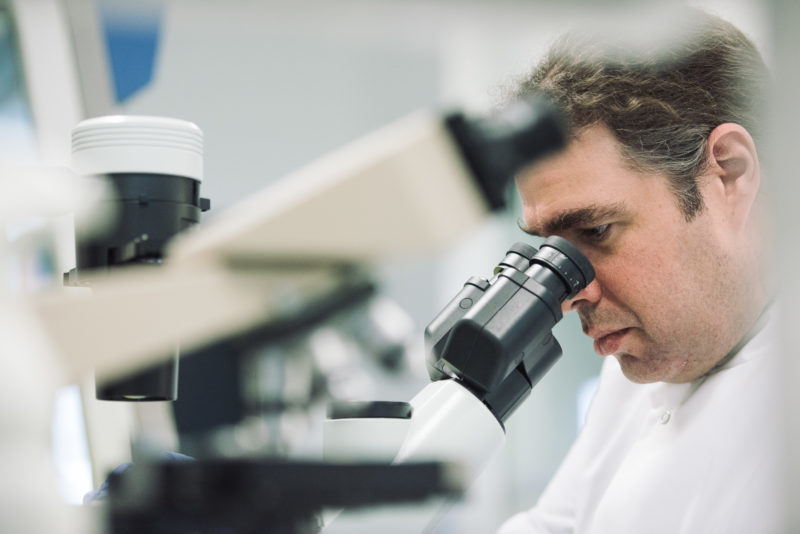During the process of transformation from a normal cell into a cancer cell, a cell acquires a series of changes, or mutations, in its DNA. In most cancers, the tumor evolves by acquiring mutations that confer growth advantages or resistance to therapies. However, DNA mutations can also result in changes to the proteins of the cancer cell that are displayed on the cell surface, and these can be recognized by T cells. These mutated proteins are called neoantigens. Neoantigens are only present on tumor cells and are not found in normal, healthy tissues. Achilles uses the principles of tumor evolution and our AI-powered bioinformatics PELEUS™ platform to identify the earliest-forming neoantigens and develop T-cells to target them.
The mutations that accumulate as a normal cell transforms into a cancer cell will be carried by all the cells of the growing cancer. These mutations are referred to as clonal neoantigens and can be represented as the ‘trunk’ of the cancer’s growing evolutionary ‘tree’. Mutations that arise later in evolution will be present in only a subset of the cancer cells. These are known as subclonal or branch mutations, as they represent the ‘branches’ of the cancer’s evolutionary tree. Neoantigens can be targeted with immunotherapies which will attack the cancer cells. However, if the therapy targets only the subclonal (branch) mutations, this will result in the ‘pruning’ of specific branches rather than the elimination of the whole cancer. This allows the cancer to evolve and develop resistance to the therapy. In order for the entire tree to fall, it is necessary to target the original, clonal, neoantigens that are present in every cancer cell.
Achilles has built a world-leading, AI-powered bioinformatics platform called PELEUS™ to identify clonal neoantigens from each patient’s unique tumor profile. Our proprietary PELEUS™ platform was developed and validated with sequence data from the landmark TRACERx study led by our co-founder Professor Charles Swanton of the Crick Institute. Achilles has exclusive commercial rights to the TRACERx study, which has generated one of the largest data sets ever collected to analyse tumor evolution.


Achilles’ therapeutic approach is to target clonal neoantigens with a precision T cell therapy. Since every cancer has a unique set of neoantigens, this involves generating a personalized T cell product for each patient. Achilles manufactures clonal neoantigen-reactive T cells (cNeT) which are exquisitely tailored to the specific set of clonal neoantigens present in the tumor using our proprietary VELOSTM manufacturing process.
The starting materials for our product are T cells isolated from the patient’s tumor sample. These T cells are known as tumor infiltrating lymphocytes (TIL). Prior clinical studies have shown that expanded TIL can debulk solid tumors and have demonstrated durable and potent responses. The advantage of using TIL as a starting material is that they are already programmed to invade and attack the tumor.
TIL that are specific for identified clonal neoantigens are isolated and selectively expanded using our VELOSTM manufacturing process. The T cells are removed from the suppressive tumor microenvironment and re-activated in the lab. The resulting cNeT have been demonstrated to be more fit and active than conventional expanded TIL products.
The diagram below provides an overview of our proprietary VELOS™ process. More information about each step can be found by clicking on the icons.
A tumour sample is obtained from the patient and is processed to isolate T cells. A portion of the tumour is also used to generate a DNA sample for sequencing.
A blood sample is taken from the patient and is processed to isolate monocytes, a type of white blood cell. These monocytes are then used to generate dendritic cells. A portion of the blood sample is also used to provide a DNA sample for sequencing.
T cells are a type of white blood cell which play a key role in the immune system and are responsible for directly killing cancer cells. The T cells used as starting material in the Achilles process are known as “tumour infiltrating lymphocytes” (TIL). These are T cells that have left the bloodstream and migrated into a tumour. TIL that have been isolated and stimulated in the laboratory before being returned to a patient have been shown to be capable of killing tumour cells in clinical trials.
Dendritic cells are a type of immune cell that show antigen to T cells in order to activate them. Their role is to take up the clonal neoantigen peptides and display them on their cell surface so that they can be recognised by the T cells.
The resulting clonal neoantigen-reactive T cells (cNeT) are fitter and more active than conventional TIL. They also have the capacity to expand further once they are administered to the patient.
Before the clonal neoantigen-reactive T cells (cNeT) are administered, the patient receives lymphodepletion therapy. This is a combination of chemotherapy drugs that reduces the number of T cells present in the body, to make space for the cNeT that will be reinfused.
This video introduces tumor evolution and architecture to explain why targeting clonal neoantigens is vital to avoid the development of treatment resistance and immune evasion.